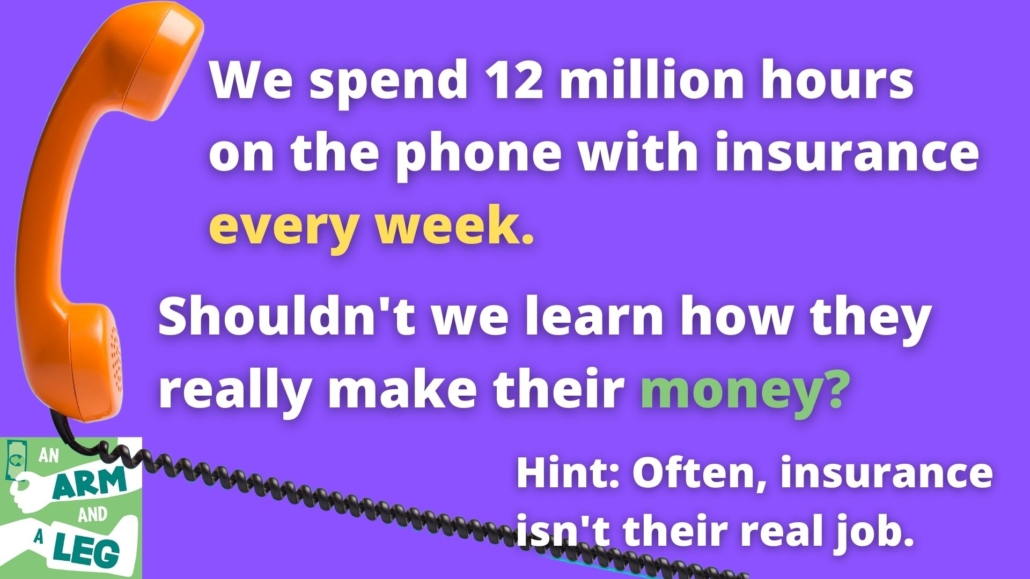
After Stanford professor Jeffrey Pfeffer got back surgery a bunch of years ago, he kept a file folder labeled “Blue Shield Troubles.”
When Pfeffer got an offer to collaborate with polling company Gallup, he suggested they study how much time they spend on the phone with their health insurer. Gallup agreed.
Their finding: We spend about 12 million hours a week calling our health insurance. (They also found that, as workers, calling our health insurance means we’re more likely to miss work, and to be more checked-out and burned-out on the job. Good times.)
And given all thatwe probably want to know as much as possible about who we’re actually on the phone with when we make those calls. Like, how do they make money? What are their incentives?
Here’s something not a lot of us do NOT know: In a lot of cases, they are not actually getting paid to provide insurance. If you get your insurance from work, your employer probably does what’s called “self-insurance.” (That’s true for about two-thirds of all workers, and more than 90 percent of folks who work for companies with more than 1,000 employees.)
It isn’t obvious if you have self-insurance. You’ll have an insurance card that says Cigna or United or Aetna or etc.. But you’re operating in a different universe. For instance, self-funded plans are governed by federal law, so your state insurance commission can’t step in and help. And that’s just a start.
In this episode, we start to get our bearings on that different universe. We talk to Pfeffer, to one of our favorite insurance nerds, Karen Pollitz of the Kaiser Family Foundation,and to journalist Leslie Walker, whose reporting for the podcast Tradeoffs indicates that when insurance companies are playing their role in “self-insurance” setups, they can get up to some shady practices. And the employers they’re working for,even big, powerful outfits,often don’t exercise a lot of oversight or even have a lot of leverage.
And while none of that seems super-cheerful, it’s super-important to know. And in our next episodes, we’ll start exploring how to put that knowledge to work.
Here’s a transcript for this episode.
Send your stories and questions: https://armandalegshow.com/contact/ or call 724 ARM-N-LEG
And of course we’d love for you to support this show.


